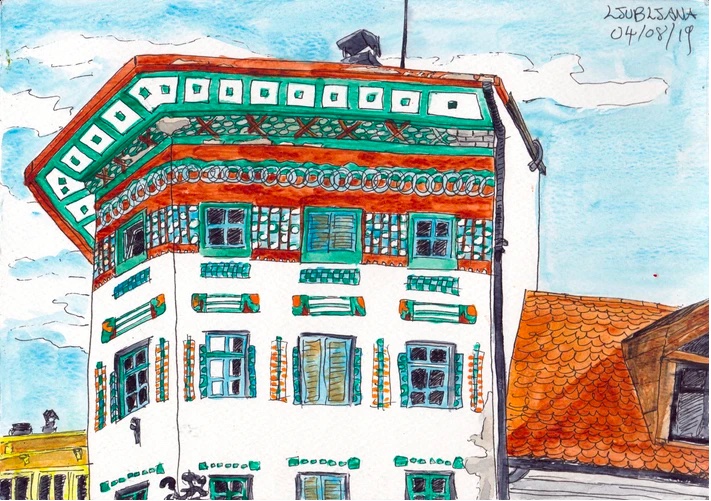One of many extra eye-catching headlines in latest months appeared in Bari Weiss’s outlet The Free Press: “How Abortion Turned ‘the Defund the Police of the GOP’”. Throughout the top of the 2020 Black Lives Matter protests within the US, “Defund the Police” got here to represent the excesses of an activist class that was out of contact with the overall inhabitants, and the black lives that appeared to solely matter as props for particular political objectives – objectives which are inclined to tarnish the picture of the Democrat Celebration for the typical voter. As Olivia Reingold explains in her article, the US Republican Celebration is now being tugged similarly in direction of an electorally hazardous place on abortion.
Transposing this picture of the centre and its fringes to the European context, we would say that social or spiritual conservatism is to the populist proper what immigration is to the left. That is a minimum of the conclusion we are able to draw from political scientist Olivier Roy’s deep and wide-range evaluation in Le Grand Continent, “The Nice Recentring”, during which Roy outlines the brand new parameters of European political centrism. Taking inventory of the varied wins and losses of European populists in recent times, Roy notes that the extra socially conservative events, like Vox in Spain (against same-sex marriage and abortion), or PiS in Poland, have tended to satisfy far worse fates than social liberals like Geert Wilders within the Netherlands, and even Marine Le Pen in France.
“The populism that wins,” Roy writes, “is a libertarian populism […]. Marine Le Pen clearly understood this when she outlined French identification by laïcité [secularism], relatively than Christianity, in her 2017 presidential marketing campaign platform. She doesn’t query the appropriate to abortion, or same-sex marriage. Thus, she rises within the polls as Marion Maréchal fails to take off. Geert Wilders, winner of the December 2023 elections within the Netherlands, has a resolutely liberal platform in the case of questions of social mores.”
In the meantime, because the populist proper continues to realize floor within the run as much as the 2024 European elections, the outlier on the left is Denmark, the place Mette Frederiksen’s left-wing authorities is thought for its unusually strict method (by European requirements) to migration and asylum. “For me, it’s changing into more and more clear that the worth of unregulated globalisation, mass immigration and the free motion of labour is paid for by the decrease courses,” The Guardian quoted Frederiksen as saying, simply earlier than her decisive defeat of Denmark’s right-wing authorities in 2019. For Roy, the Danish authorities typifies the brand new centre in European politics. “The most common instance of this shift”, Roy writes, “is to be present in Denmark, the place the Social Democrat get together has carried out essentially the most restrictive coverage of exclusion and compelled assimilation in the entire of Europe, exactly within the identify of the social mannequin and liberal values.” Roy additionally contains the France of Emmanuel Macron on this shift: “In France, they enshrine abortion within the structure proper once they approve essentially the most restrictive immigration legislation.”
With reference to Macron and the political centre, it’s price recalling Didier Fassin’s London Overview of Books article from 2019, the place Fassin argues that Macron (an “excessive centrist”) is in actual fact a populist of kinds: “Populism is usually understood as a discursive technique opposing the folks and the elite, with populists claiming to characterize the primary towards the second. However the Belgian political theorist Chantal Mouffe, an advocate of left-wing populism, argues persuasively that it additionally implies a vertical type of energy and requires a charismatic chief. Macron, who makes a lot of his rejection of conventional political elites – proper and left – and of his want for a direct relationship with the folks, is undoubtedly a populist.”
Obtain the most effective of European journalism straight to your inbox each Thursday
One other outlier on the European left, and a politician who little question agrees with Mette Frederiksen’s evaluation of mass migration, is Sahra Wagenknecht in Germany. Julia Kaiser, writing for the UK outlet centered on EU politics and coverage, The Parliament, factors out the irony of the truth that the AfD’s chief electoral menace – in addition to efforts to outright ban them, in fact – comes from a politician who’s ostensibly on the alternative facet of the political spectrum. Speaking to Kaiser, a board member of the German institute for election evaluation Forschungsgruppe Wahlen factors out the electoral overlap between the AfD and Wagenknecht’s BSW: “When trying into the supporter teams, we see the best potential within the AfD’s assist base: 43% of AfD supporters contemplate voting for the BSW.” Fabio De Masi, the BSW’s lead candidate within the upcoming EU elections, is open in regards to the get together’s try to faucet into the frustrations of AfD voters: “We wish to make a severe supply to those that vote for the AfD out of frustration and anger as a result of they suppose that is essentially the most seen option to categorical their protest.”
For a number of causes, nonetheless, Wagenknecht doesn’t belong to the brand new European centre outlined by Olivier Roy. These causes embody her perceived Euroscepticism, in addition to her opposition to offering navy help to Ukraine. Whereas Frederiksen, in addition to, say, Poland’s just lately elected Donald Tusk, might have damaged with liberal or left-leaning consensus on migration, they’re firmly pro-NATO and pro-Ukraine, and hardly have a Eurosceptic bone of their our bodies. One would by no means think about the EU Observer publishing an article declaring that somebody like Wagenknecht ought to be the subsequent EU Council President, however it’s hardly shocking to see them publish an article arguing that Mette Frederiksen ought to occupy that function.
EUROPEUM analysis fellow Hugo Blewett-Mundy writes that Frederiksen is the best candidate to exchange Charles Michel when his time period ends within the close to future, and that it’s exactly Frederiksen’s forthright stance in direction of Russia that ought to earn her that function. Denmark is “the second-largest bilateral donor to Kyiv in proportion to gross home product (behind Estonia) […]. Regardless of the financial fallout from the warfare, Denmark has allotted 60.4bn kr (€8.1bn) in a nationwide Ukraine fund. Frederiksen has additionally personally led joint efforts to ramp up defence funding.” Blewett-Mundy additionally highlights Frederiksen’s expertise for consensus-building: Frederiksen’s authorities ran a profitable referendum marketing campaign in June 2022 to reverse Denmark’s opt-out of EU defence coverage, “a courageous choice for a historically Eurosceptic nation to take”.
In partnership with Show Europe, cofunded by the European Union. Views and opinions expressed are nonetheless these of the writer(s) solely and don’t essentially replicate these of the European Union or the Directorate‑Common for Communications Networks, Content material and Expertise. Neither the European Union nor the granting authority may be held answerable for them.








